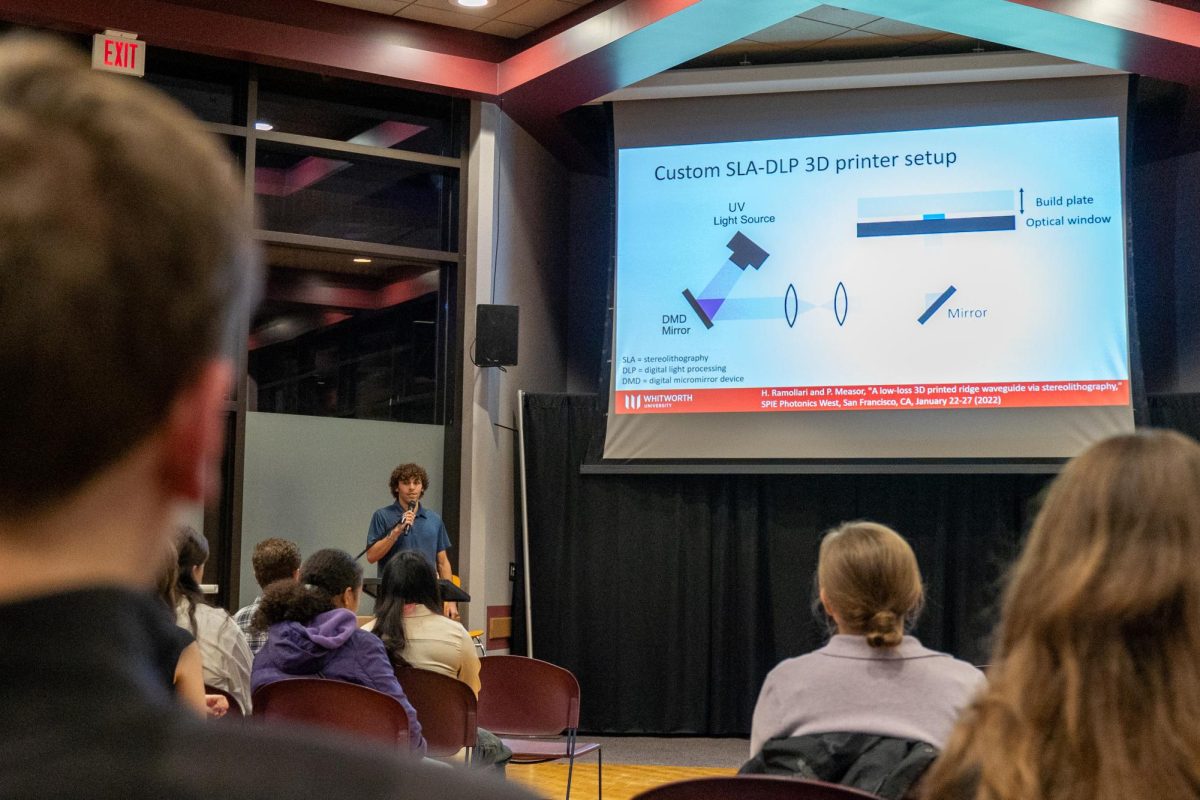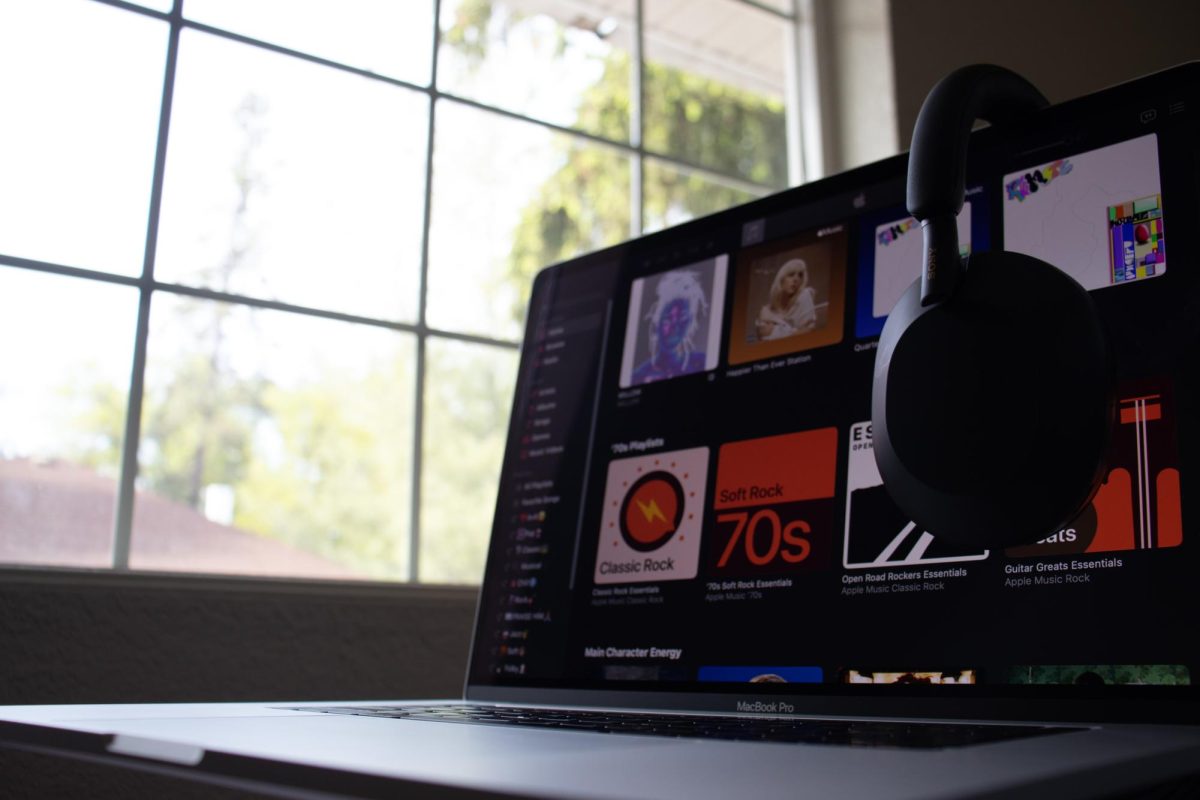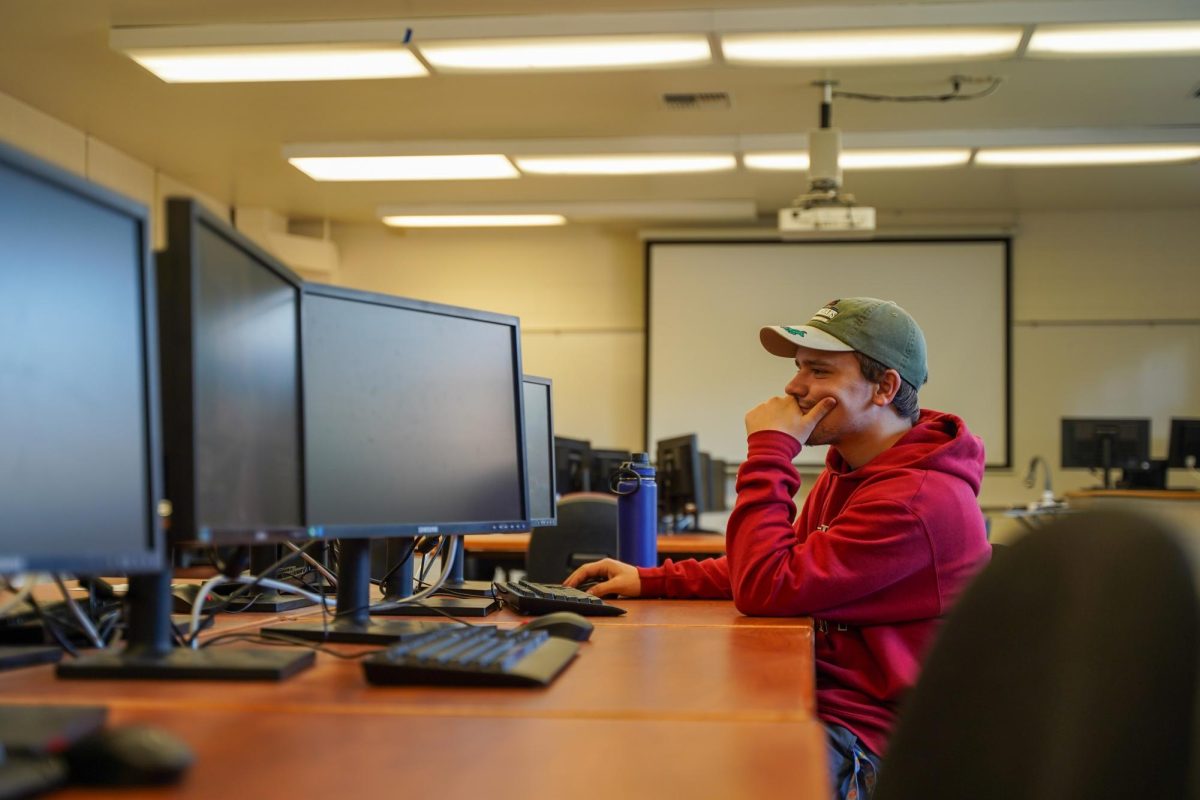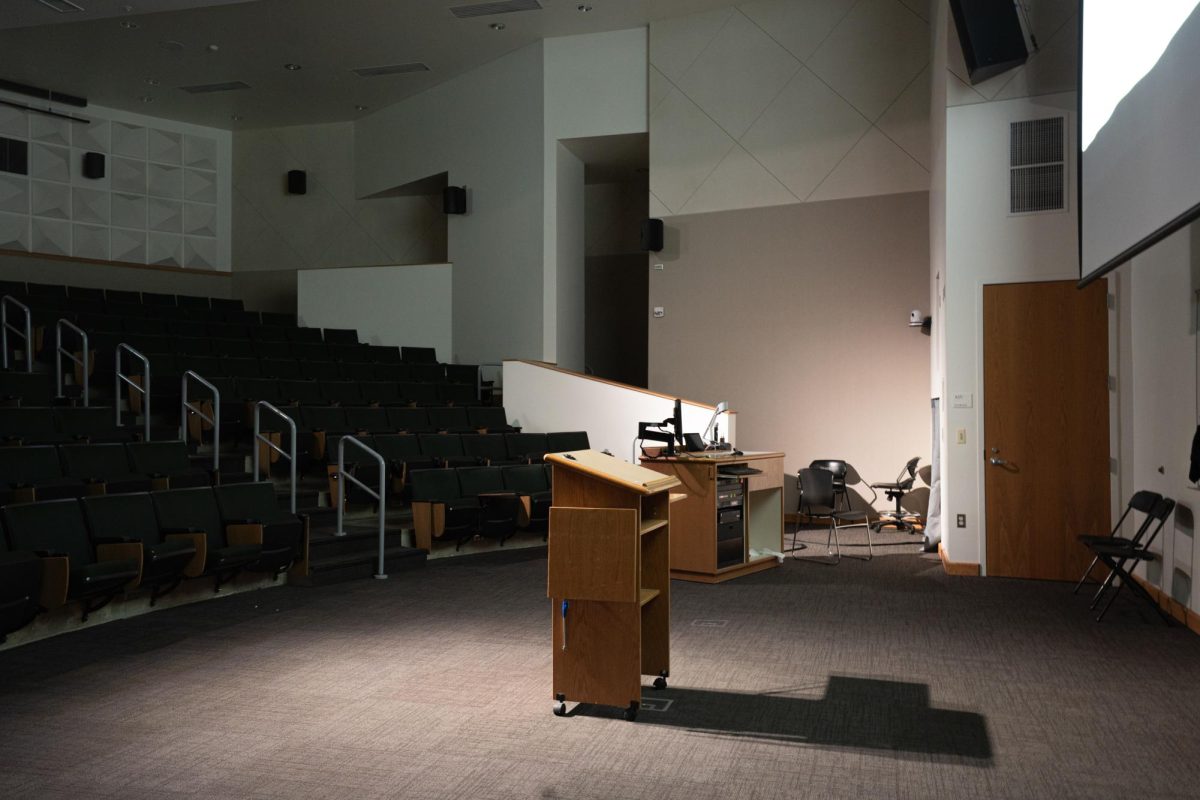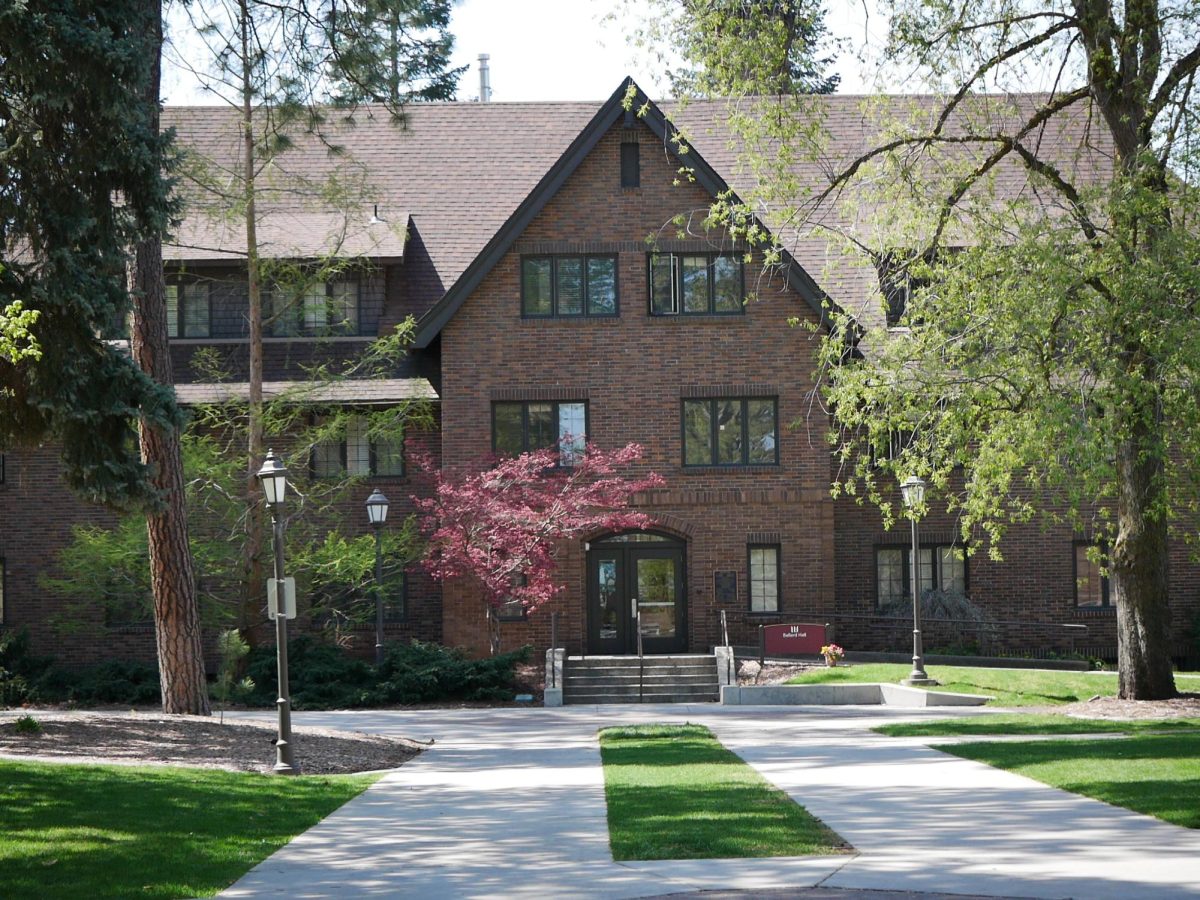Research projects ranging from optimizing fuel use in spacecraft launches, to innovating a way to 3D print microdevices to sort roundworms by their ability to be bioluminescent, to how climate change affects freshwater ecosystems, were presented on Monday, Oct. 21, in the MPR.
Eric Davis, a professor in the chemistry department, oversaw this summer’s research program as well as last year’s. The research was done by students in any of the STEM departments. Each project had a faculty advisor in their related field, and the studies all took place during the summer break. By doing these research projects, students gained experience in the world of research as well as being paid. There were more than two dozen projects completed this summer.
Kamrynn Burk and Ainsley Hill, both senior biochemistry majors, worked on a project focused on crystallography, or the study of how crystals form, with Dr. Wheeler.
Hill says that these experiences are a great opportunity for students. “It’s strongly recommended to go get some research experience for any type of grad school. It’s advantageous for things like med school, pharmacy school, pretty much anything, applying for a job […] It’s a paid internship for the summer. It’s 40 hours a week for 10 weeks here on campus […] And then during the semester we get credit for it,” she said.
There is also a goal of publication. Many of these projects are passed down from one student to another until publication is an option or the research is simply over.
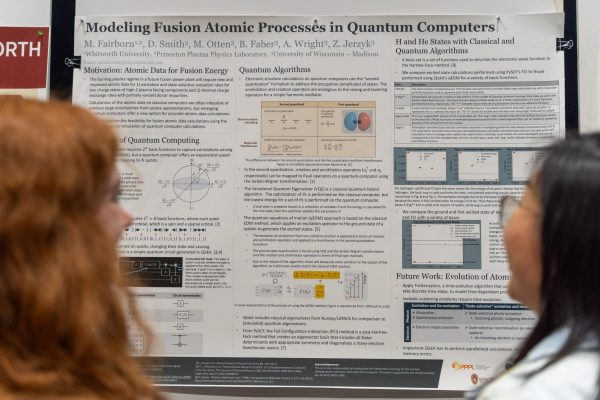
Burke said that this event is a great way to see what everyone else has been doing over the summer. “I think each department can kind of get in their own little bubble when it comes to research. Especially, at least in my experience [in] the chemistry department, I usually only know about what all the other chemistry majors are doing. So this event is really important […] I think it’s important for students to feel proud of their research and be able to present that as well. I mean it’s a lot of work and a lot of times, I think we kind of just put in all the work, but we don’t actually appreciate it and get to talk about it with other people,” she said.
During the event, Kristi Shaka, a master’s student with a Whitworth BA in biochemistry ‘24, found the round worm project interesting. “How the biology aspect of it kind of mingles with the engineering. That can have real–world consequences […] Lots of smaller schools just don’t have the money for the equipment and whatnot. But if we can develop that then we can help out so many other schools. And I think that’s cool,” she said.
Some of these students also get the opportunity to present their projects in things like the American Chemistry Society meeting taking place in San Diego this spring. Students like Burke and Hill were able to treat this event like a practice, low stakes version of that.
Burke has found this to be a great experience that she wants others to have as well. “If I were to say anything it’s ‘do research.’ It’s really cool. I was really nervous to do research because impostor syndrome is super real, especially in STEM fields […] Stepping out of your comfort zone and being willing to be wrong and to try things and mess up and then eventually get things, it’s a really important way of learning,” she said.
Information on research internships can be found on each STEM departments’ website where faculty specializations and expertise are laid out for students to choose from.

